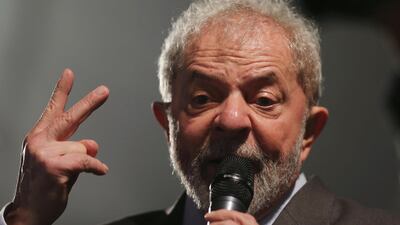Former Brazilian leader Luiz Inacio Lula da Silva - once described as the most popular politician on earth - has been convicted of corruption charges and sentenced to nearly ten years in prison.
The ruling completes a stunning downfall for Lula who harnessed his personal popularity with rising wealth from a commodities boom to make Brazil a major player on the world stage during his two terms in office.
He will remain free while he appeals the verdict but faces four more trials for corruption over his alleged role in masterminding the scandal that involved kickbacks to senior politicians from state oil company Petrobras.
The 71-year-old was convicted of accepting a bribe of a beachfront apartment for his help in winning contracts from Petrobras. The case is just one part of a sprawling inquiry, known as Operation Car Wash, that has seen executives and senior politicians jailed.
The conviction is a major blow for his chances of a return to power in presidential elections next year after serving eight years as president until 2011.
Lula had denied the charges and claimed that the case against him was politically motivated. He will be barred from office if the charge against him is upheld.
Despite the charges against him, he remains a highly popular figure in Brazil. Social policies introduced when he was president helped reduce deep inequalities.
He used his growing influence as head of an emerging superpower to seek to broker peace deals in the Middle East and re-align global politics.
His success prompted former US President Barack Obama to call him the most popular politician on earth at a G20 summit in London in 2009 as Brazil relatively unscathed from the global financial crisis.
His legacy has since unravelled owing to an economic downturn and political turmoil that has implicated nearly all of the major political parties.
His chosen successor Dilma Rousseff was impeached last year for breaking spending rules amid the sprawling multi-billion dollar corruption and money laundering inquiry.


